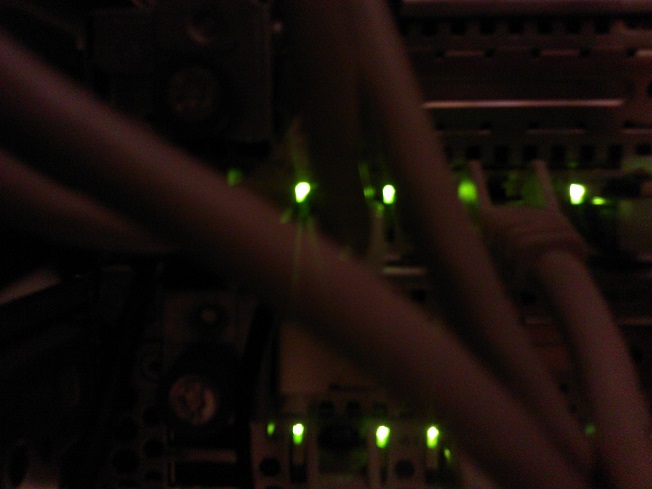
Oligopolies, legal monopolies: the laws that allow cable companies to corner the market and smother you. First off, if you think that companies like Comcast/Xfinity and Time Warner weren’t colluding and price fixing, you’re blind. Second, why do we allow cable companies exclusive rights to specific regional areas? The cable companies lobby the government to allow them to continue this way because of the cost of laying out their network. If they had to lower their prices to compete, they couldn’t afford to update their network. We don’t do that for phone companies, and many would argue that the telephone companies had similar, if not much larger, outlays of cash to create their networks nearly a half-century before the cable companies.
If the proposed 45 billion dollar buyout actually takes place, we are in a lot of trouble. Right now, there is no real competition in the cable internet marketplace. And that was Comcast’s brilliant move. They argue that this buyout shouldn’t been seen as anti-competitive, because technically the two companies don’t operate in the same market. In fact, Comcast representatives say, they have never faced as MUCH competition as they do now, with the likes of Amazon Prime, Netflix, and Hulu Plus. My jaw literally dropped when I heard this line. You’re joking, right? Comcast thinks that Netflix is in direct competition with them? Netflix, which Comcast as an ISP controls the internet access to, is a threat to Comcast, as a cable TV provider!? I don’t think that’s how it works!
Allowing them to provide television content and determine the future of the internet should EASILY be seen as a conflict of interest! If Comcast directly calls Netflix competition, as they have by mentioning it as a threat to their cable TV service, they shouldn’t be afforded the kind of power in shaping the future of the internet that a mega-company that “Time Warner + Comcast” would have! But their lobbyists are hard at work on the hill, and their PR department is hard at work planting stories to make you think it’s a good thing. It seems like only the Washington Post’s reporters are seeing through this, so far.
“If these investments earn a high return, the strategy has the potential to pay off in the long run.”
But what I’m talking about sounds like opinion. It sounds like I’m “anti big business.” So let me give some cold hard facts:
Comcast’s 2013 earnings report says that the company increased their Free Cash Flow year over year by 6.9%, and now has 8.5 Billion dollars. I’m no financial expert, so a trip over to Investopedia says that Free Cash Flow can be defined as operating cash flow minus capital expenditures. Capital expenditures include everything from employee salaries, to CEO bonuses, to, yes, maintaining their network. Comcast wants to complain about how expensive it is to maintain and upgrade their network, but the fact of the matter is that they are reluctant to upgrade their network in the interest of creating the most profits. Free cash flow isn’t even considered part of profit, a company can have negative free cash flow and still be seen as a positive thing. Back to Investopedia: “It is important to note that negative free cash flow is not bad in itself. If free cash flow is negative, it could be a sign that a company is making large investments. If these investments earn a high return, the strategy has the potential to pay off in the long run.”
“Profits in big cities accommodate expenses in small towns.”
I don’t mean to pick on Comcast, though. It is easy to blame cable companies because we’re looking at top tier speeds. But even DSL companies like Verizon are refusing to upgrade their infrastructure. U.S. wireless carriers are equally trailing behind other parts of the world. IBM recently unveiled a new chip that promises to deliver Internet more than 400x the speed of Google Fiber, almost 5,000x the speed of your average home internet connection in the United States. With real investment to fiber-optics to every home (yes, a major undertaking, I under stand that), you could put a gigabit of internet to every house. With the advent of the ADC, your major backbones wouldn’t get bogged down, and as we’ve seen, even with Netflix creating an increased load on the internet as a whole, “the internet” is not “maxed out” by current standards. Imagine future proofing it with 5,000x your current speed at the backbone level?
The argument that internet speeds are maxed out and cannot be improved without substantial overhaul doesn’t hold water. Yes, laying out new lines is expensive, whether it’s copper wire or fiber optic. But when a company has 8.5 billion dollars cash on hand that they are not investing in their network you have to ask what, exactly, they’re doing with their money!? We’ve already seen that negative “free cash flow” can be a good thing, if you’re investing in something that has potential for return. Considering reliance on the internet grows by leaps and bounds every year, to the point where it is considered at least as utility, and at best as a human right, I would say that maintaining the infrastructure of the internet is a pretty sound investment.
The future is moving online – even your cable TV provider will most likely, in the next few decades, stop sending video signals “the old fashioned way” and, essentially, stream content over a wide-pipe internet connection to your TV. Same company, same content, new delivery method. Upgrading the infrastructure is good for all sides, and desperately needed, as there are places outside of major metropolitan areas that are still suffering from a complete lack of attention, because they are not seen as profitable. Phone companies wanted to provide a service, the profit wasn’t seen in the number of users in an area, it was about connecting their customers to other customers. The connectivity and use will lead to profit – profits in big cities accommodate expenses in small towns. Rural Pennsylvanian’s paying $500/mo. for 1.5Mbps T1 connections are not going to see the benefits of these network improvements for at least ten years. You can’t be in the cable business and complain that upgrades are expensive, when government grants cover expenditures, profits are in the billions of dollars, and you are so large that a new start-up competitor cannot enter the market without the resources of someone as big as Google. Even Google Fiber can only roll out in a few large cities, one at a time. It’s expensive, but you chose this as your business. The only reason they don’t care if customers aren’t happy is because we, as customers, can’t do anything about it.

